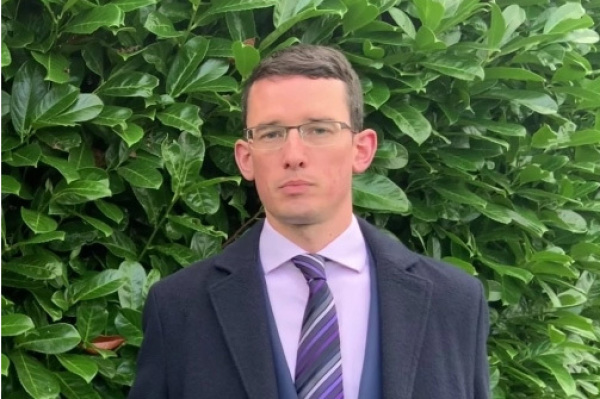Alarming Spate of Suicides, Mysterious Deaths Among Bankers Prompt Speculation
 2 photos(Photo: Reuters)JPMorgan's offices in Beijing, China.
2 photos(Photo: Reuters)JPMorgan's offices in Beijing, China.There have been several prominent news reports on the sudden and mysterious deaths of several bankers and businessmen from around the world since January, leading some to speculate that the deaths point to economic trouble on the horizon and others to suggest that work-related pressures likely played a part, as suicide has been a factor in many of these cases.
The latest mysterious case reported is that of James Stuart Jr. Stuart, a former CEO of National Bank of Commerce whose career path includes time at Citibank and First Commerce Bancshares. He was found dead on Feb. 19 with no details given on the circumstances of his death, according to JournalStar.com.
Just a day prior, it was reported by the New York Post that 33-year-old JPMorgan banker Li Junjie had jumped 30 stories to his death from the roof of the Charter House building in Hong Kong used by the company.
Li reportedly had complained to colleagues about work-related stress before committing suicide Feb. 18. Witnesses say police tried to keep the 33-year-old banker from leaping from the Charter House building, 10 floors of which are used by JPMorgan, according to the Financial Post. A statement from JPMorgan Chase & Co. called Li's death "a sad and tragic incident."
Bloomberg News reported that Ryan Crane, a 37-year-old JPMorgan Chase & Co. employee, died at his Stamford, Conn., home on Feb. 3. The 14-year banking executive's cause of death was unknown and pending a toxicology report.
The Wall Street Journal reported on Tuesday, Jan. 28: "A 39-year-old man died Tuesday morning after falling from J.P. Morgan Chase Co.'s skyscraper in Canary Wharf, one of London's main financial districts, according to a police statement. The J.P. Morgan employee, Gabriel Magee, vice president in technology operations, landed on a ninth-floor roof and was pronounced dead at the scene." The WSJ quoted a police spokesman as saying "the incident is being treated as non-suspicious."
The publication also reported: "Separately, Tim Dickenson, a U.K.-based communications director at Swiss Re AG, died last week. The circumstances of and reason for Mr. Dickenson's death haven't been made public."
Additionally, London police were called to the home of William Broeksmit, a 58-year-old American and former senior executive at Deutsche Bank AG "who appeared to have committed suicide, according to a person familiar with the matter." CBS News reports, citing London authorities, that Broeksmit was found hanging in the home on Sunday, Jan. 26.
Also, according to Businessweek: "Mike Dueker, the chief economist at Russell Investments, was found dead at the side of a highway that leads to the Tacoma Narrows Bridge in Washington state, according to the Pierce County Sheriff's Department." The 50-year-old chief economist reportedly died Wednesday, Jan. 29.
A detective with local law enforcement said Dueker "was having problems at work, without elaborating" although a company spokesperson said he had been "in good standing" at Russell Investments. Dueker apparently had committed suicide after "[jumping] over a 4-foot fence" and "falling down a 40- to 50-foot embankment," according to Businessweek. The Associated Press reported that Dueker previously was reported missing by his family the same day his body was found.
What could this spate of deaths mean, and are they connected in any way?
Those are the kinds of questions speculators have been mulling, chief among them Wayne Allyn Root, a bestselling author, former CNBC host, Fox News contributor, and 2008 Libertarian Party vice-presidential nominee.
Root speculates on his website these deaths were somehow connected to an upcoming "epic economic collapse" or "economic Armageddon" due to "spending, entitlements and debt" spawned by "corrupt, ignorant and reckless politicians." Root admits that he could only offer "educated guesses" but is convinced that "something is very wrong. Something bad is coming."
The string of banking and business-related deaths also has landed on the radar of Timothy Maxwell "Max" Keiser, an American broadcaster who has worked with Russia Today, the BBC, Al-Jazeera English and others. He suggested on a Russia Today program that there were reports that "up to 20 bankers have recently been found dead," and said he did not think their cases were connected. Keiser suggested, instead, that pressures from ongoing investigations into financial fraud might have played a part.
The WSJ report noting the rash of banker deaths also cited serious concerns about worker-related stress, an issue that several major banks such as Credit Suisse Group AG, Bank of America and Merrill Lynch have been reviewing and taking measures to address.
Dr. Christine Moutier, of the American Foundation for Suicide Prevention, told the New York Post that the cluster of deaths was "striking."
"In some high-stress careers, worrying about mental health is seen as a weakness and goes untreated," said Moutier.
Joris Luyendijk, business blogger for The Guardian, has spoken in-depth with finance workers about their experiences on the condition of anonymity. Luyendijk told Russia Today in a recent report on the recent suicides that bankers work in a "deeply dysfunctional and abusive system" and face all types of pressures and instability on the job.
Watch Russia Today's Feb. 17 report on the rash of banker suicides:






















